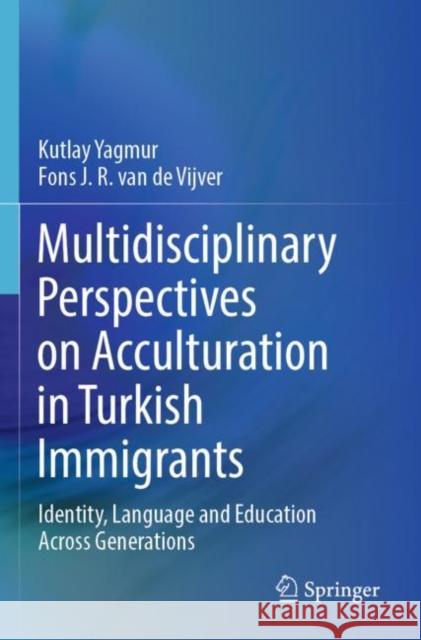Multidisciplinary Perspectives on Acculturation in Turkish Immigrants: Identity, Language and Education Across Generations » książka
Multidisciplinary Perspectives on Acculturation in Turkish Immigrants: Identity, Language and Education Across Generations
ISBN-13: 9783030947989 / Angielski / Miękka / 2023 / 162 str.
Multidisciplinary Perspectives on Acculturation in Turkish Immigrants: Identity, Language and Education Across Generations
ISBN-13: 9783030947989 / Angielski / Miękka / 2023 / 162 str.
(netto: 421,70 VAT: 5%)
Najniższa cena z 30 dni: 424,07
ok. 22 dni roboczych.
Darmowa dostawa!
This book puts forward a new model of acculturation combining psychological, sociolinguistic and identity theories to study Turkish immigrants across the globe. The authors argue that such a multidisciplinary perspective is very important in understanding acculturation processes in migrants, particularly for pivotal aspects such as language and identity. Studying one group or several groups within a country is the most common methodological approach in acculturation studies. The authors argue on the basis of their extensive ethnographic work that focusing on one immigrant ethnic group across countries instead provides deeper insights into interactive acculturation orientations of both the receiving societies and immigrant groups. They therefore synthesize findings from their work on Turkish immigrants in Australia and several countries in Europe. Moreover, they include extensive accounts of acculturation across several generations of Turkish migrants, thereby giving readers insights into the long-term acculturation process. The book critically discusses language maintenance and shift, child-rearing practices and socialization beliefs, and educational achievement in Turkish immigrants, and uses a mixed-methods approach. It is meant for researchers and policy makers interested in acculturation and the role of the acculturation context.In a nutshell, the book stresses the dynamic and ever-evolving nature of linguistic habits and cultural integration tendencies and convinces the reader about the complexity of the background factors that play a role in shaping the behaviour of immigrant minorities. Anyone who reads the book will be equipped with the skills to critically assess research on immigrant language maintenance.
This book puts forward a new model of acculturation combining psychological, sociolinguistic and identity theories to study Turkish immigrants across the globe. The authors argue that such a multidisciplinary perspective is very important in understanding acculturation processes in migrants, particularly for pivotal aspects such as language and identity. Studying one group or several groups within a country is the most common methodological approach in acculturation studies. The authors argue on the basis of their extensive ethnographic work that focusing on one immigrant ethnic group across countries instead provides deeper insights into interactive acculturation orientations of both the receiving societies and immigrant groups. They therefore synthesize findings from their work on Turkish immigrants in Australia and several countries in Europe. Moreover, they include extensive accounts of acculturation across several generations of Turkish migrants, thereby giving readers insights into the long-term acculturation process. The book critically discusses language maintenance and shift, child-rearing practices and socialization beliefs, and educational achievement in Turkish immigrants, and uses a mixed-methods approach. It is meant for researchers and policy makers interested in acculturation and the role of the acculturation context.











